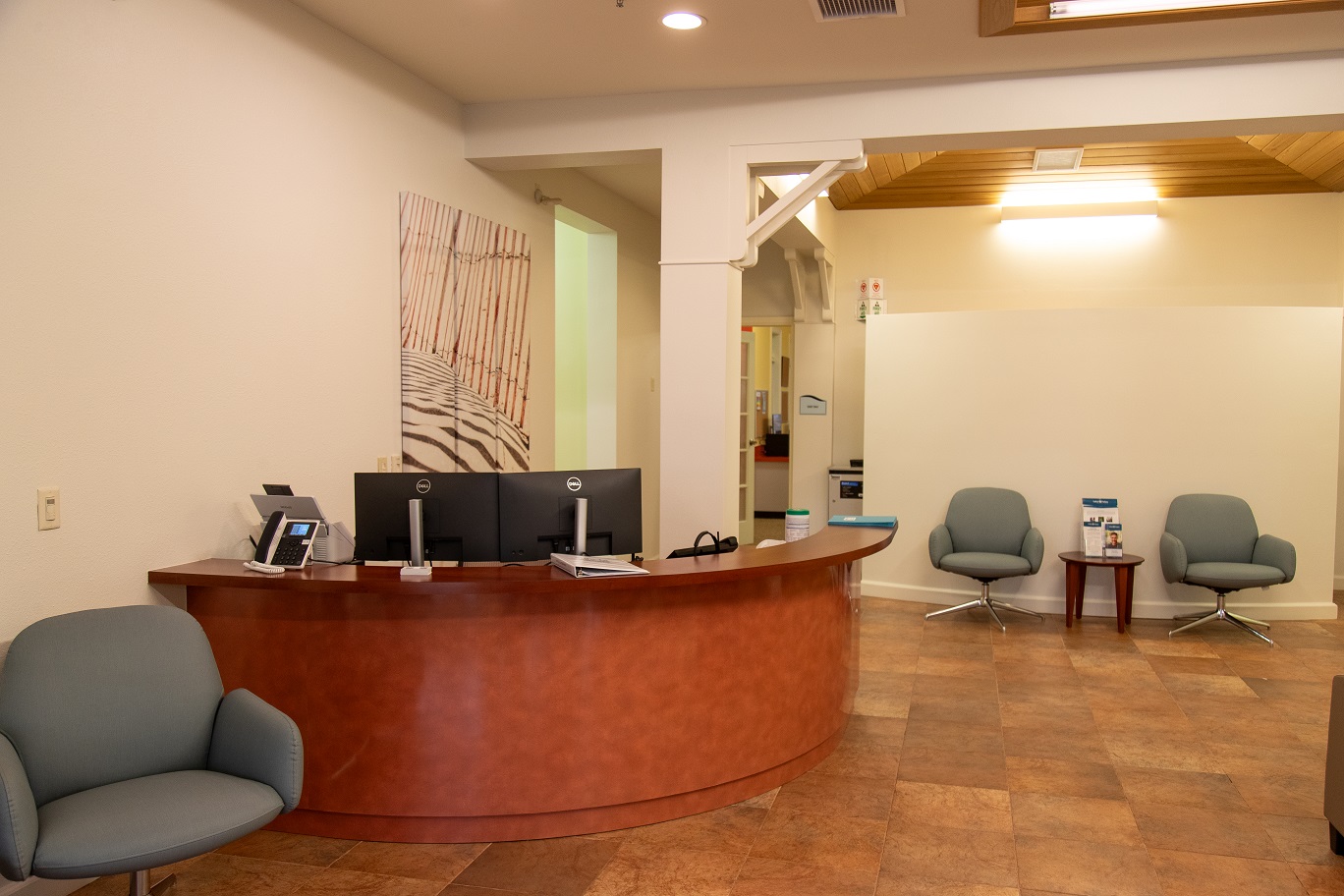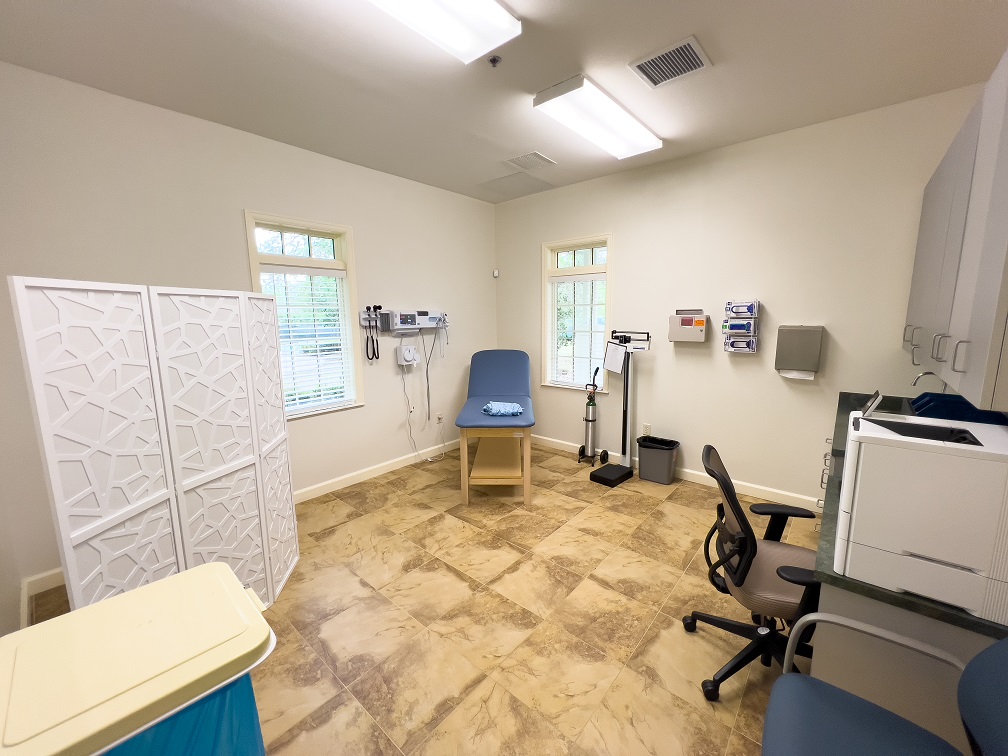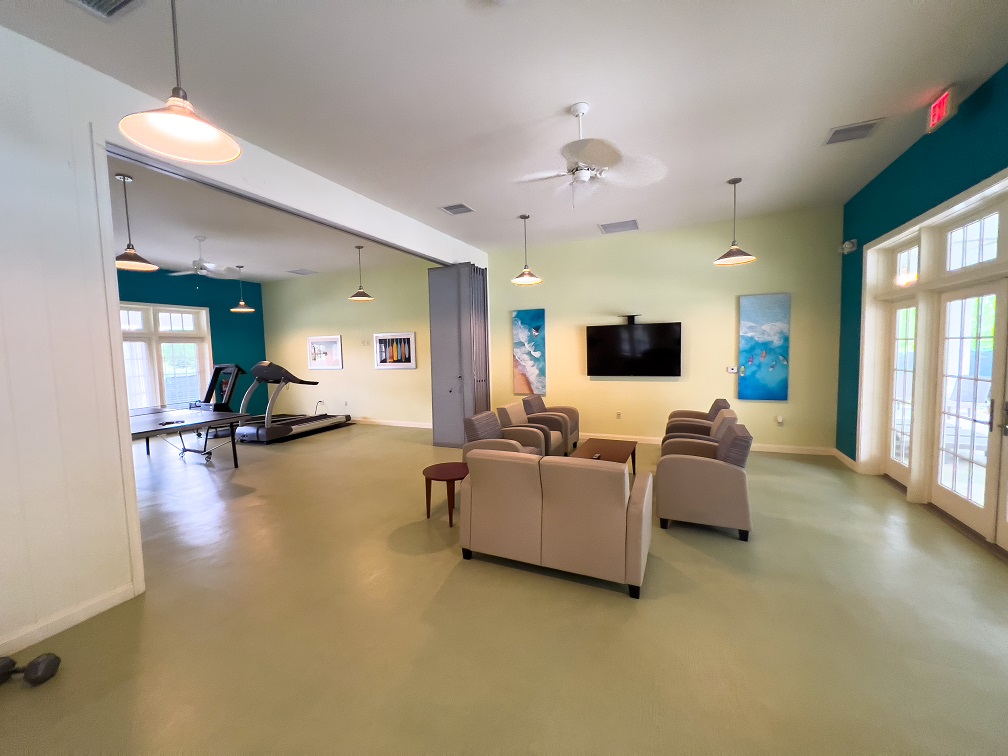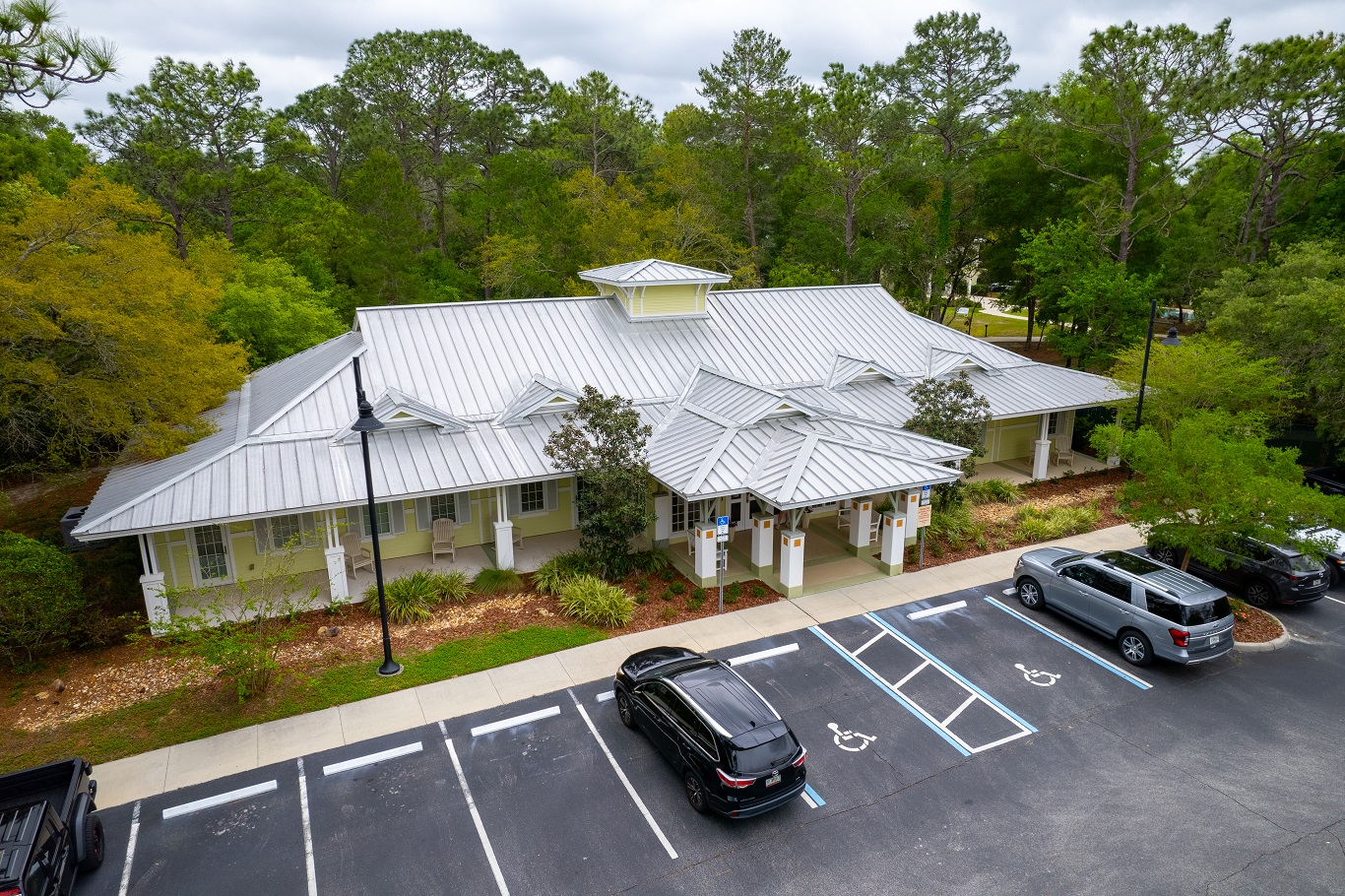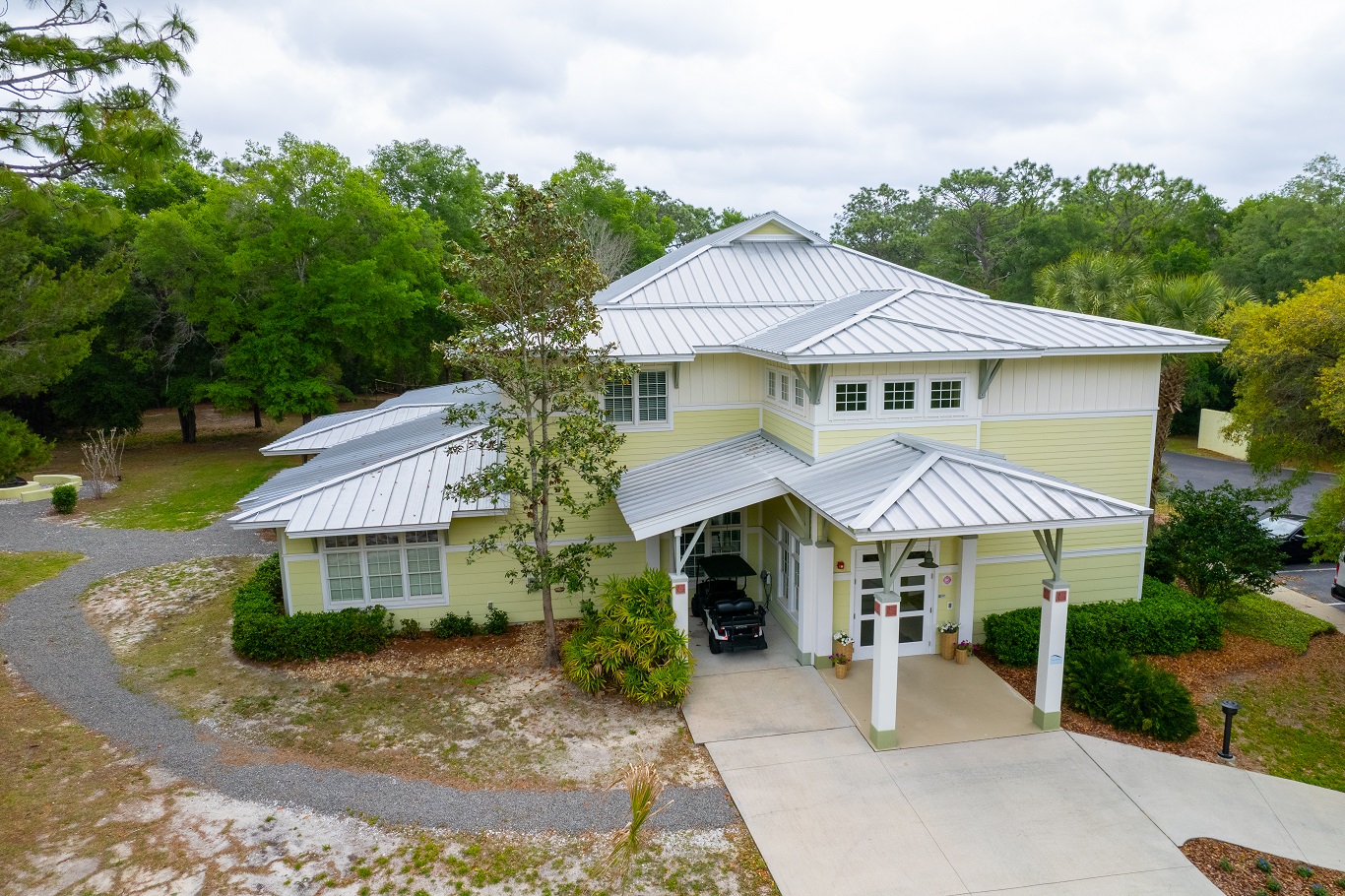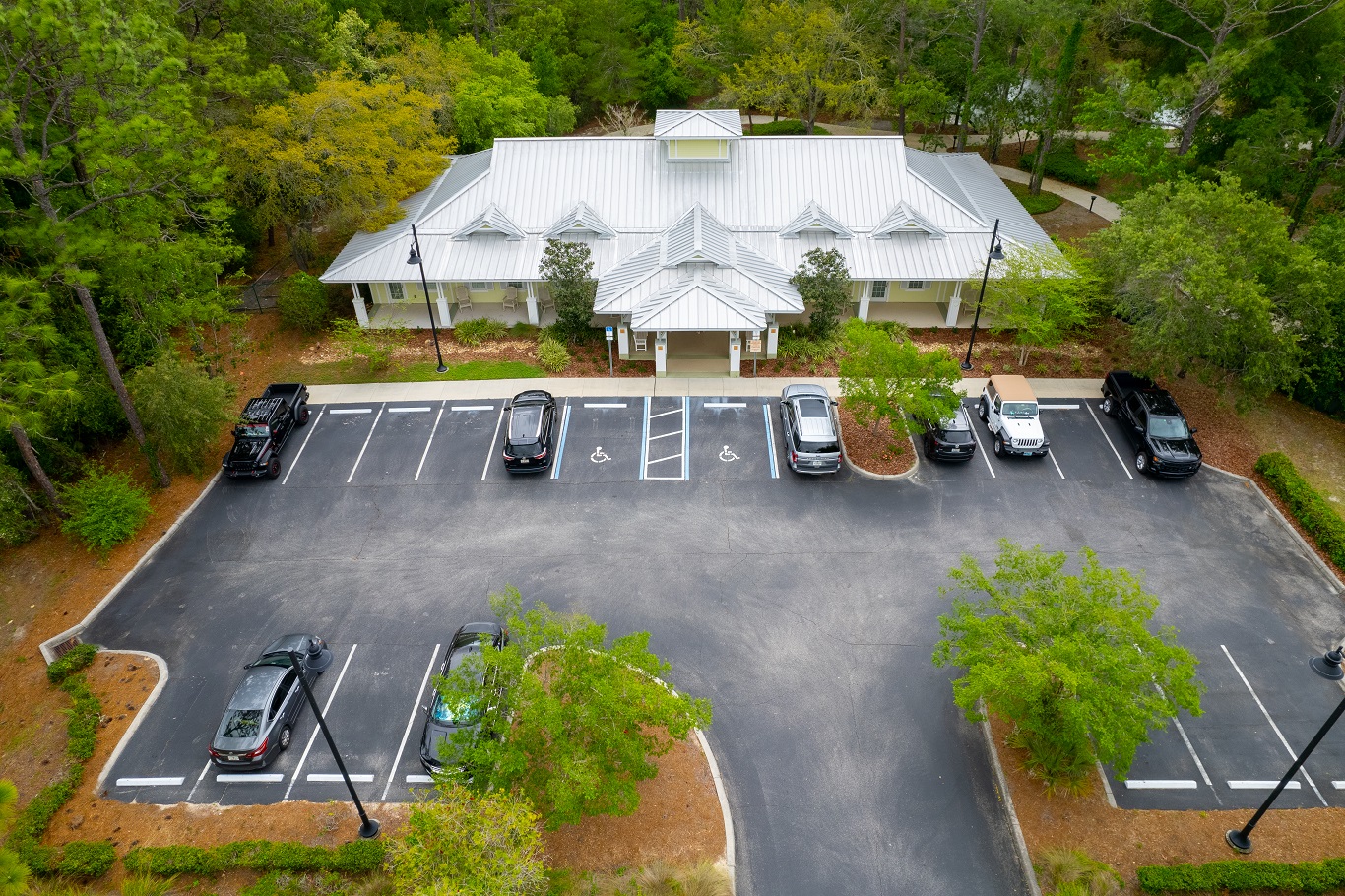Sabal Palms Recovery Center in Brooksville, Florida, provides a transformative healing environment for people who are struggling with alcohol addictions. At our 10-acre campus north of Tampa, clients can detox from alcohol, learn the root cause of their behaviors, and begin the path to recovery.
Treating Alcohol Addiction
Sabal Palms Recovery Center’s residential treatment program integrates a range of evidence-based therapies, including cognitive behavioral therapy (CBT). CBT is woven into each person’s care plan and can help them understand how their behaviors and thoughts influence both alcohol addiction and the capacity for healing.
At our Florida alcohol addiction treatment center, a team of licensed therapists, social workers, and medical staff provides addiction and co-occurring mental health treatment services. Our center’s comprehensive approach to treatment focuses on helping people heal their minds, bodies, and spirits. Because every individual’s history, circumstances, and goals are unique, we tailor each person’s treatment plan to suit their specific needs.
Our emphasis on personalized treatment means that no two people will have an identical experience at our recovery center. We understand that any form of addiction is complex and there is no one-size-fits-all method of treatment. Depending on your history, needs, and goals, your individualized alcohol addiction treatment plan may include:
- Basic medical care
- Individual therapy
- Family therapy
- Daily group therapies, including psychoeducational and medication education groups
- Detoxification services provided by our doctors, registered nurses (RNs), and nurse practitioners (NPs)
- Medication management services delivered by our licensed practical nurses (LPNs), RNs, and NPs
By taking part in our therapies, you can build relationships with others who understand what you are going through. Our Brooksville, Florida, alcohol addiction treatment center offers an opportunity for you to improve your health and begin your recovery journey.
Alcohol Addiction Treatment Center in Brooksville, Florida
At Sabal Palms Recovery Center near Tampa, we follow a trauma-informed approach for alcohol addiction treatment. We believe that everyone deserves to and has the potential to live a full, meaningful, healthy life.
Our residential treatment center for alcohol addiction features various evidence-based therapies and services, round-the-clock care, and detailed discharge planning. We provide every client at our facility with an individualized care plan that guides them through their time with us. Treatment takes place in a safe, welcoming, and extremely supportive environment that is conducive to healing.
When you call Sabal Palms Recovery Center, an intake coordinator will be happy to discuss our treatment options and answer any questions you may have to help you determine if our alcohol addiction treatment center is right for you.
Signs & Symptoms of Alcohol Addiction
Alcohol addiction, also known as alcohol use disorder, is a chronic and potentially life-threatening disorder affecting millions worldwide. It is characterized by a compulsive and uncontrollable urge to consume alcohol despite the negative consequences it may cause in someone’s life.
The signs of alcohol addiction may vary from person to person. How do you know if you or someone you love is struggling with alcohol addiction? According to the fifth edition of the Diagnostic and Statistical Manual of Mental Disorders (DSM-5), people who have an alcohol addiction may show a range of physical, behavioral, and psychological signs, such as:
- Drinking alone or hiding alcohol
- Cravings for alcohol
- Loss of control over drinking
- Drinking in large amounts or for longer periods than intended
- Withdrawal symptoms when not drinking
- Continued drinking despite negative consequences, such as relationship problems, health concerns, or legal troubles
- Spending a lot of time drinking or recovering from drinking
- Neglecting responsibilities because of drinking
- Sacrificing experiences or activities that were once enjoyed to accommodate a drinking habit
If someone is exhibiting two or more of these signs, they may be struggling with alcohol addiction. It is important to receive treatment for alcohol addiction if you want to regain control of your life and heal your mind, body, and soul.
Alcohol addiction can negatively impact nearly every major organ system if left untreated. Alcohol abuse significantly contributes to various cancers, chronic malnourishment, and diminished well-being. Physical consequences of alcohol addiction may also include:
- Distorted vision
- Profuse sweating
- Sleep disturbances
- Stomach cramps, nausea, or vomiting
- Changes in color and texture of the skin
- Tremors
- Memory disturbances and difficulty concentrating
- Depression and anxiety
- Cirrhosis of the liver or liver failure
- Damage to the heart, kidneys, or gastrointestinal system
- Physical injuries due to impaired judgment or coordination
At Sabal Palms Recovery Center, we know how hard it can be to stop drinking alcohol. Even if you’ve been unsuccessful with traditional alcohol addiction treatments in the past, we are here to help you address the root causes of addiction and learn effective strategies for maintaining recovery. When you receive an accurate diagnosis and enter our residential treatment center, we can help you learn to manage the symptoms of alcohol addiction and pursue a healthier life.
Causes of & Risk Factors for Alcohol Abuse
Alcohol addiction can have multiple causes, including a combination of biological, psychological, and social factors.
- According to the DSM-5, people are three to four times more likely to develop alcohol addiction if they have a close family member who abuses alcohol.
- Stress, trauma, and social pressure can increase the risk for alcohol addiction. Living in an environment where alcohol consumption is accepted or encouraged can also contribute to the development of an addiction.
- People who have depression, anxiety, bipolar disorder, or another mental health condition may be more likely to use alcohol as a form of self-medication.
- If someone experiences trauma and does not possess the skills to cope with the effects in healthy ways, they are more likely to abuse alcohol.
- People who begin drinking at an early age, particularly before age 15, may be at a higher risk for developing alcohol addiction.
It is important to note that alcohol addiction can affect anyone, regardless of background, gender, or circumstances. The staff at Sabal Palms Recovery Center is trained in evidence-based mental healthcare and will be here for you during your stay at our Florida residential treatment center.
Effects of Untreated Alcohol Addiction
Alcohol abuse can profoundly affect your physical, mental, and social well-being. The harmful effects of alcohol addiction might include physical health problems, strained relationships, legal issues, and financial challenges. If not treated, it can also contribute to:
- Problems with job performance, job loss, or continued unemployment
- Being arrested, fined, or jailed
- Trouble with family, friendships, and romantic relationships
- Social isolation
- Homelessness
- Diminished self-confidence and self-esteem
- Thoughts of suicide
- Engaging in risky behaviors that could result in injury
- Irreversible damage to the heart, liver, kidneys, gastrointestinal tract, and brain
- Increased risk for cancer
- Weakened immune system
When you receive care at our alcohol addiction treatment center near Tampa, Florida, you can limit your risk for future negative effects of alcohol use. You can also address the root causes of addiction with our trained therapists, social workers, and behavioral health technicians.
What Is Alcohol Withdrawal?
Alcohol withdrawal occurs when someone who is dependent on alcohol stops drinking or significantly reduces their alcohol intake. Withdrawal symptoms can range from mild to severe and may include physical, psychological, and behavioral symptoms.
Withdrawal symptoms typically begin within a few hours to a few days after the last drink and can last for several days or weeks. Severe alcohol withdrawal can progress to a potentially life-threatening condition called delirium tremens (DTs). Symptoms of DTs can include seizures, auditory or visual hallucinations, fever, and rapid heartbeat. DTs can lead to serious complications, such as dehydration, kidney failure, heart attack, and death, if left untreated.
Other symptoms of alcohol withdrawal include:
- Severe tremors
- Powerful headaches that feel like a band wrapped tightly around your head
- Inability to sleep
- Nausea and vomiting
- Painful pins and needles in hands and feet
- Irritability and paranoia
- Irrational or impulsive behaviors
The symptoms of alcohol withdrawal can make it difficult or even dangerous for a person to stop drinking without professional alcohol addiction treatment. It is important to seek medical attention if you or someone you know is experiencing alcohol withdrawal symptoms.
Alcohol Addiction Statistics
Alcohol addiction is a widespread disease affecting people of all genders, ages, and ethnicities. Although alcohol is a legal and widely available substance, excessive consumption can lead to serious health and social problems. In fact, many people do not realize that they have an addiction until it starts negatively affecting their life. According to the National Institute on Alcohol Abuse and Alcoholism (NIAAA):
- More than 14 million adults in the United States meet the criteria for a diagnosis of alcohol use disorder.
- Less than 8% of people who have alcohol use disorder receive treatment.
- More than 10% of children in the United States live with a parent who has alcohol use disorder.
- Throughout the world, alcohol use is a factor in 6% of all deaths.
- In the U.S., alcohol abuse is believed to be more widespread than the abuse of other substances, like tobacco, marijuana, and opioids.
At Sabal Palms Recovery Center in Brooksville, Florida, we believe that your personal experiences are more than a statistic. It takes courage to reach out for help for an addiction. Our caring and compassionate staff will work closely with you to encourage internal growth and personal transformation as you pursue recovery.

